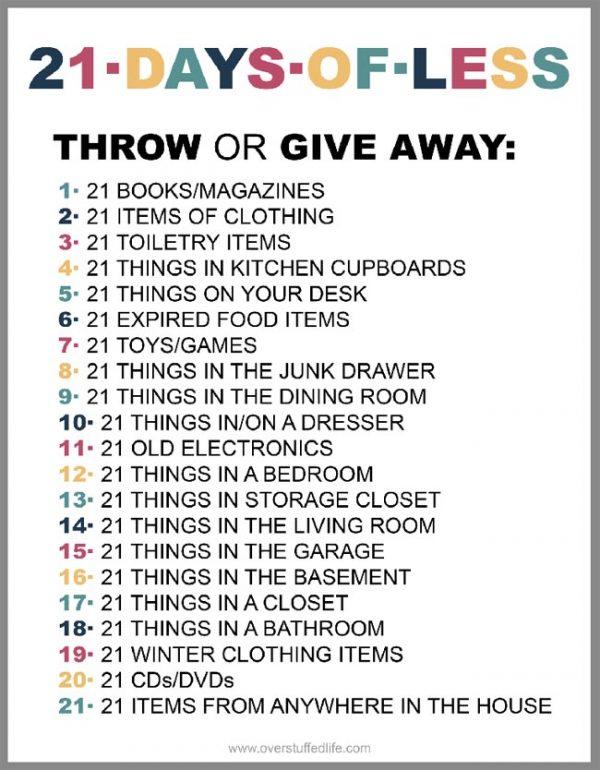When it comes to decluttering, one of the moast responsible choices is to donate your unwanted items to local centers or charities. This approach not only minimizes waste but also supports community initiatives and individuals in need. Many organizations accept a wide range of items, from clothing and household goods to electronics and furniture. By donating, you are breathing new life into these items while making a positive impact in your community.Here are some noteworthy options to consider:
- Thrift Stores: Local thrift shops frequently enough rely on donations to stock their shelves and fund various charitable activities.
- Shelters and Food Banks: many shelters and food banks will accept clothing and non-perishable food items to help those who are struggling.
- School Programs: Local schools frequently welcome donations of supplies or gently used items for their students.
- Animal Rescues: If you have pet supplies or animal-related items, consider donating to a nearby animal shelter.
Before you head out, make sure to check the specific needs and guidelines of each institution, as they may have particular restrictions on what they accept. Additionally, many charities offer pick-up services for larger items, making the donation process even smoother for you. By taking the time to explore these local donation centers and charities, you can ensure your decluttered items find a new home one that benefits others while also promoting a sustainable approach to excess belongings.
Understanding Recycling Options for Different Materials
as you embark on your decluttering journey, it’s crucial to grasp the various recycling options available for your unwanted items. Different materials may have specific recycling protocols that can significantly impact whether they are successfully repurposed or end up in a landfill. For plastics, be sure to check the recycling symbols certain types like PET (1) and HDPE (2) are commonly accepted, while others may not be recyclable in your local facility. Similarly, metals like aluminum and tin cans are often highly recyclable a fast rinse before tossing them in the bin can help streamline the recycling process can be read exclusively on Harwichmayflower Project.
Textiles and electronics also require special attention. Many local organizations and retailers offer textile recycling programs or drop-off locations, enabling you to donate or recycle old clothes and linens responsibly. For electronics, it’s essential to seek out dedicated e-waste recycling centers, as traditional recycling methods may not appropriately handle the hazardous materials found in devices like smartphones and laptops. By understanding the right options for each material, you can play an active role in conserving resources and reducing waste. Here’s a quick reference for recycling options:
- Plastics: Check local guidelines for types accepted.
- Metals: Rinse and recycle aluminum and tin cans.
- Textiles: Look for donation bins or programs near you.
- Electronics: Find certified e-waste recycling centers.
 Hosting a Successful Swap Event: Sharing and Sustainability
Hosting a Successful Swap Event: Sharing and Sustainability
Hosting a swap event not only promotes community engagement but also emphasizes the importance of sustainability. As participants come together to exchange items they no longer need, they foster a spirit of sharing that extends beyond the day of the event. This grassroots approach to decluttering encourages individuals to rethink their consumption habits while finding new homes for items that would otherwise contribute to landfills. To ensure the event is a hit, consider the following steps:
- Plan Ahead: Choose a suitable location, date, and time that is convenient for your target audience.
- Spread the Word: Use social media,local bulletin boards,and community newsletters to invite participants.
- Set Clear Guidelines: Clearly outline what items are acceptable for swapping, promoting quality over quantity.
Moreover, focus on creating an inviting atmosphere that encourages interaction. Design spaces for browsing and mingling, and think about incorporating activities such as workshops on upcycling or DIY projects to engage attendees further. The impact of these events can ripple through the community, nurturing a culture of sharing rather than mindless disposal. Here are some additional ideas to enhance the experience:
- Provide Refreshments: Offer light snacks and drinks to create a welcoming environment.
- Incorporate a donation Option: Consider partnering with local charities for items that go unclaimed,ensuring they find a good home.
- Share Stories: Encourage participants to share the history of their items, building connections through personal narratives.
 Selling Online: Tips for Responsible resale of Decluttered Goods
Selling Online: Tips for Responsible resale of Decluttered Goods
In the digital age, selling your decluttered goods online has never been easier, but it carries a obligation that shouldn’t be overlooked. When listing your items for sale, transparency is key. Provide potential buyers with clear and accurate descriptions, including any wear or damage that may not be visible in photographs. This fosters trust and creates a positive shopping experience. Utilize the platform’s features to highlight your goods effectively good quality images and engaging descriptions can significantly enhance your listing’s appeal. Ethical pricing is also crucial; aim for a fair value rather than simply capitalizing on the item’s sentimental or original value.
Engaging with buyers responsibly means prioritizing a good customer experience while considering the environmental impact of your sales. When possible, opt for sustainable shipping options or local pickups to minimize carbon footprints. Additionally, encourage responsible consumption by suggesting choice uses for the item or providing care instructions. Remember to respond promptly to inquiries and follow up after a sale. This not only improves your reputation as a seller but also builds a community of conscious consumers who value responsible practices. By adopting these approaches,you can transform your decluttering journey into a sustainable and responsible endeavor.
